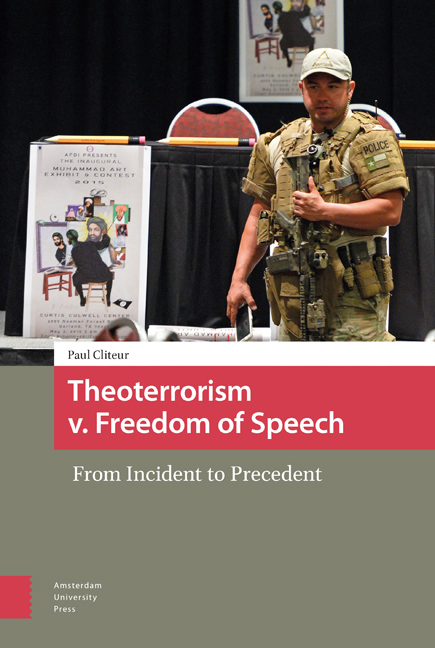Book contents
3 - The Coherence of Theoterrorism
Published online by Cambridge University Press: 21 November 2020
Summary
No doctrine dies because it has been criticized or even attacked; it can die, however, because it has been immunized against criticism.
Amin MaloufAs we have seen in Chapters 1 and 2, in 1987, Germany and the Netherlands were ill-prepared for the kind of confrontation that radical Islam (or Islamism) posed to the world. The worldview that brought Khomeini to issue a death verdict on a British author, or make threats to a German television show master, was new for most Western politicians. Foreign Minister Van den Broek formulated this, unwittingly, when he said that Iran had a completely different view on freedom of the press, the mocking of religious leaders, etc. Now, for all the criticism that may be exerted on the minister's stance in this dilemma, this assessment cannot be contradicted. Slowly the West would learn more about the differences, but we have to emphasize “slowly” here.
It may be enlightening to start with an anecdote that also tells us something about Dutch culture. In April 2008 the American-Israeli terrorism-expert Amos Guiora (b. 1957) had dinner with Ahmed Marcouch (b. 1969), then District Mayor of Slotervaart, then a district of Amsterdam, and now Mayor of Arnhem. The dinner was held shortly after Sheikh Fawaz Jneid (b. 1964), the radical imam of the as-Soennah mosque in The Hague, frequented by Moroccan youth, issued a fatwa against Marcouch, of Moroccan background, who had suggested on a national TV show that Islam must “come to terms with homosexuality”. “One person is Muslim, another person is homosexual, and yet another person is both Muslim and homosexual. That is what I stand for”, Marcouch had said. In addition, he had alleged that full assimilation into the Netherlands was only possible if young Islamic men sought gainful employment and learned Dutch.
On the television program Pauw & Witteman, during a debate with Fawaz Jneid, Marcouch said that the imam had signed a statement referring to Marcouch as a “hypocrite” and “disguised unbeliever”. According to Marcouch, the statement had the status of a fatwa (an Islamic judgment, and in this case also a kind of curse), and as a result, his life may be in danger.
- Type
- Chapter
- Information
- Theoterrorism v. Freedom of SpeechFrom Incident to Precedent, pp. 65 - 96Publisher: Amsterdam University PressPrint publication year: 2019



